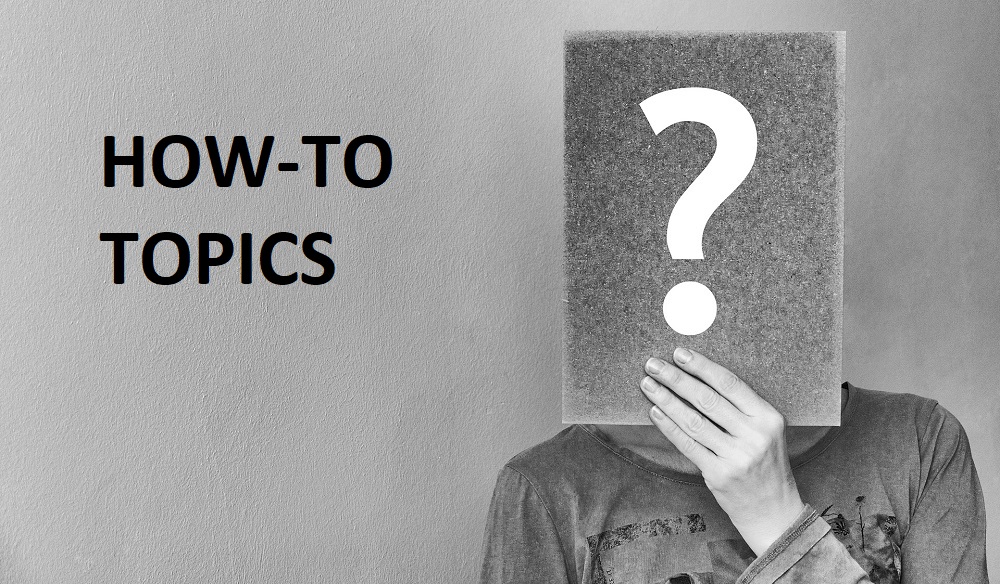If you are reading this, it means you are probably looking for a guide on how to write a historiographical essay. After all, this is not a simple essay to write. And let’s not forget that students are not academic writers. Many of them don’t even have enough time to write all their research papers before the deadline. This is why, on this page, the best essay writers in USA have explained everything you need to know in order to write a great historiography essay. Yes, this includes information about the format, an example outline, a short guide, some free topics (all original, of course), and some of the best tips and tricks you can get. Let’s get started on your historiographic essay!
What Is Historiographical Essay?
So, what is a historiographical essay? We will start with the definition because you need to understand what is required of you before you can even think about writing the paper.
A historiographical essay is an academic paper which aims to discuss how several authors treat a single historical event (or any other historical topic).
You need to keep in mind that you will have to analyze information from several sources, some of which may be contradictory. Here are some things that will help you out if you’re just starting to plan the paper:
- Try to find an annotated bibliography on the topic you’re preparing to write about. This will enable you to find other texts about the same topic with ease.
- Another way to find texts on the same historical event is to go through the bibliographies or footnotes of the texts you read.
- Always keep in mind that the purpose of the historiographical paper is to discuss the historical event from different perspectives. This includes searching for reasons why the various sources disagree on some key points.
- To make sure you understand what is required of you, we’ll give you an example: the Attack on Pearl Harbor. You can write the historiographical essay using at least 3 sources: the American side, the Japanese side, and the inhabitants of Oahu Island, Hawaii.
Also, keep in mind that you will need to start your paper with an interesting historiography thesis statement. This should be engaging enough to keep your audience hooked.
The Historiographical Essay Outline
Now it’s time to talk about the historiographical essay outline. The structure of the essay is not that different from any other paper you’ve written to date, so you don’t have to worry about it too much. However, it is a good idea to start your project with a good outline. It will keep you on track and focused on the important parts of your research paper. Here is how an example outline looks like when it comes to a historiographical essay:
- Introduction
- Thesis statement
- Background information
- Transition to Body Paragraph #1
- Body Paragraph #1
- Statement
- Content that supports the statement
- Transition to Body Paragraph #2
- Body Paragraph #2
- Statement
- Content that supports the statement
- Transition to Body Paragraph #3
- Body Paragraph #3
- Statement
- Content that supports the statement
- Transition to Conclusion
- Conclusion
- Thesis statement (reminder)
- Summary of the 3 body paragraphs
- Call to action (if necessary)
- Works Cited
How To Write Historiography Paper In 6 Easy Steps?
You are probably wondering when we’ll get to the part where we show you how to write a historiography paper. We’ll this is the part you’ve been waiting for. To keep things simple, we will show you how to write a historiography essay in just 6 steps (based on the example outline above):
- Think about the thesis statement and write it down. This is basically the aim of your paper (or the most important research question you wish to answer).
- Write the introduction. Start with the thesis statement, provide some background information about the topic and then transition to the first body paragraph.
- Write 3 body paragraphs, each one discussing a single important idea. It’s usually a good idea to start with a statement and use the rest of the paragraph to support it. You are free to include counter-arguments and analysis sections in your body paragraphs as well.
- Write the conclusion. Remind your readers of the thesis and then summarize all of your body paragraphs. Make it clear how your research has answered the research question.
- Create the Works Cited section. Don’t forget to list every single work you’ve cited or used in your research.
- Edit and proofread your work. We recommend you do it twice to make sure it is flawless. You certainly don’t want to lose points over typos or minor errors in logic.
Congratulations, you’ve just learned how to write historiography research papers and have just written your first historiographical essay! Now it’s time to discuss some of the interesting and informative topics you could write your paper on.
20 Great Historiographical Essay Topics
Did you know that the historiographic essay topics you choose have a great impact on the final grade you receive on your paper? It’s true. Professors love to see interesting topics; topics that nobody else has thought of. The better the topic, the more bonus points you can get. And remember, the historiographical essay topics you choose should have at least 3 different texts written about them. We would advise you to pick at least 3 different perspectives from people who have taken part in the historical event or who have studied it extensively. Here are some topic ideas that shouldn’t prove too difficult to write about:
- The Attack on Pearl Harbor
- Сreation of Alexander the Great’s empire
- The Napoleonic Wars
- The birth of Jesus (or the birth of Christianity)
- First use of gunpowder in ancient China
- The Great Crusade of 1095
- The American Revolution (1775)
- Establishment of the first Shogunate in Japan
- Signing of the Magna Charta in England
- The Bubonic Plague pandemic of 1347 in Europe
- Rise and fall of the Inca Empire
- The French Revolution (1789)
- Start of the conquest of the Americas by Europeans
- Vasco Da Gamma’s new trade route to India
- The abolition of slavery in America
- Life and accomplishments of Suleiman the Magnificent
- The English civil war or 1642
- Building of the iconic Taj Mahal in India
- Boston Tea Party
- The American Civil War (1860)
Where To Get Historiographical Essay Sample From?
We know, you are probably still having some questions regarding the process of writing the historiography paper. This is precisely why we always encourage our readers to look at an excellently-written historiographical essay example. Check out the following example historiography research paper:
Historiographical Essay Example
The Vietnam War is universally acknowledged to be a dark period in the history of the United States. One reason for this is the sheer number of atrocities committed during this war, and the fact that many of those atrocities were caused by American soldiers, and were a result of war crimes. From the years just after the war ended, historians were interested at discovering the truth behind the horror stories coming out of Vietnam. An examination of the ways in which these histories are written can tell the reader as much about the concerns of the time in which the histories were written as it can about the actual events of Vietnam. Three historians who explore the history of Vietnam in a way which reflect the concerns of their own time are Lewy, writing in 1978, Nelson writing in 2008, and Burgess, Stockey and Coen, writing in 2010. By examining the works of these authors, a reader can get a view not only of how soldiers were viewed in relationship to the violence of Vietnam, but also how those views express the authors’ concerns about what is currently going on around them.
One factor on which all the authors discussed can agree is that the Vietnam war was a dark period of American history, primarily because of its brutality. As Burgess et. Al note, those who fought in the war were exposed to “extraordinary brutality”, committed both by those whom they fought and by their own forces. It was a time, according to Lewy, of terror, torture and indiscriminate killing. It is a period, according to Lewy, that Americans would like to forget. The criminal violence of the war in Vietnam is one reason why it is one period of history of which Americans are not proud.
Though on these things the accounts of Nelson, Burgess et al. and Lewy agree, the focus of the authors is different, and their attitude toward the soldiers involved differs. In his work, Lewy explains that the atrocities committed in Vietnam were a result of the fact that the soldiers were under the continual risk of violence. He notes that they never knew from whence the violence would come, because they did not know whether a person was a civilian or an enemy combatant on the verge of attack. He writes that this fact resulted in hatred toward the local civilians, and the continuing violence resulted in the wish for vengeance. He writes: “Feelings of hatred and vengeance were difficult to control, and the hostility toward the unseen enemy was often transferred to the civilian”. In this way, Lewy seems to be excusing the violence against the citizens because of the hateful environment in which the soldiers were righting. This implies that the violence is a natural result of fighting in a region where no civilian can be trusted, and a reaction to the violence of the enemy. Lewy also notes that as bad as the war crimes of the United States were, they were not as bad as the actions of the communists against whom they fought. He writes that the West was not only naive in not understanding how brutal the tactics of the Communists were, but also that they learned nothing from the painful mistakes of Vietnam regarding communist actions. By his comments regarding the reasons for the violence of the soldiers and the actions of the enemy, Lewy implies that the war crimes of the United States can be excused by the fact that they were fighting brutal communists, who still need to be dreaded. This book was written in 1978, when the Cold War was still under way, and Lewy’s interpretation of the events of the Vietnam War and his ideas about the Communist enemies reflect the Cold War attitude of the time in which he was writing.
Nelson’s work, too, reflects the considerations of her own time. She was writing in 2008, when there was mistrust of the government and questions about the morality of the war in Iraq. This attitude is reflected in her work by the continual references to the fact that, though the soldiers were troubled once they reached home by the violence they perpetrated, in the end the blame for that violence can be laid at the feet of the people in command who not only knew about the crimes when they were committed but covered up those crimes for decades. Though she discusses stories such as those of Private Hoag, who ended up in a hospital under psychiatric care because of the trauma he experienced because of what he did in Vietnam, these stories do not make up the bulk of her book. Though the title of the book implies that it will be about soldiers confronting the truth of the war crimes, the soldiers of the title are mainly those in command, those who had direct control over the actions in Vietnam or over covering those actions up. Her sympathy for the private soldiers and condemnation of those in command is illustrated by the comment she makes about officers who chose not to report war crimes. According to her, the commanders didn’t consider the crimes that were committed “as egregious as sending them into a senseless war and placing them in untenable combat situations”. Nelson is more interested in telling the reader about the crimes of those in command than she is in exploring the effect of those crimes on the soldiers who committed them. Her reason for this focus, she tells the reader, is that she is worried the United States is going to follow the same path in Iraq. She writes: “having failed to address the past, we’re destined to repeat it”. While she writes about Vietnam and its aftermath, she is writing the book because of the current questions of morality that are being discussed in 2008 about the Iraq war. She is worried the same kinds of crimes, and the same kinds of coverups, are happening in 2008 as were taking place in the Vietnam war.
Though written only 2 years later, the work by Burgess et al. discusses the war crimes of Vietnam in a different way. This article is concerned with the diagnosis of PTSD and its implications for a criminal defense against war crimes. Though the authors of this article, too, are concerned with the potential similarities between Iraq and Vietnam, they do discuss the plight of the individual soldiers who committed war crimes and were negatively impacted by the experience. They note that the development of a diagnosis of PTSD was a direct result of the mental health of the soldier returning from Vietnam. This article is by far the one most sympathetic toward soldiers in that it recognized the life-long implications of the Vietnam war crimes on the soldiers, but it is also interested in what happens to those soldiers once they come home and must cope with being back on the home front. The article notes that some of the soldiers returning from Vietnam committed further criminal acts, while others committed suicide. This article’s focus is on what happens to soldiers when they come home and how the crimes to which they have been exposed may affect them in later years. This article is relevant to its own time because, like the years after Vietnam, soldiers are coming home from Iraq. Since Iraq is being described in terms like those of Vietnam regarding war crimes and violence, the discussion of PTSD and its criminal implications is as relevant in 2010 as in the 1970s.
Nelson, Burgess et al. and Lewy all discuss the same events in history. They all discuss the war crimes committed in Vietnam by US soldiers. They differ, though in the way they tell their tales and who they blame for those atrocities. Examining the differences within these books is enlightening for the reader not just because of what they say about Vietnam, but also for what they say about the societies in which the historians are writing.
The good news is that our expert writers can write one for you. Our sample will be written on your chosen topic and will be 100% original. What does this mean for you? It means you will be able to use our content in your own paper. Don’t worry, nobody will ever know that you have gotten a bit of help with your historiography essay from our academic writers.
Can’t You Just Write My Essay for Me?
OK, but why go to all this trouble? Can’t your experts simply write my essay for me? We know that writing a historiography research paper can be a difficult task, especially if it’s the first time you’re doing it. This is why you should definitely buy custom essay from our college educated essay writers. Don’t worry, all of them are native ENL writers and professionals respected in their fields.
What is …? How to …? Tips, tricks, advice…? No, you don’t even need to know more. Our knowledgeable experts are pros at writing research papers on any subject and topic, including historiography. We can write an amazing research paper for any high school, college or university student. Any class, any subject any topic – we are your best source of top quality custom academic content online. We can assure you that your professors will greatly appreciate your next essay and grade it accordingly. Give us a try today!

















